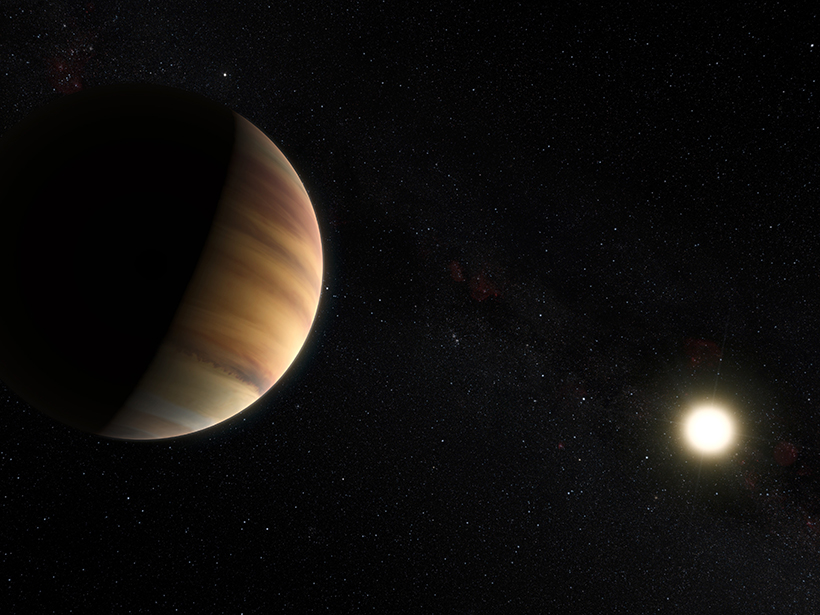51 Peg b Wins the Nobel.
Congratulations to Michel Mayor & Didier Queloz being jointly awarded the 2019 #NobelPrize in Physics!
51 Pegasi b for the win! https://t.co/0M0xY46IXE
— AGU’s Eos (@AGU_Eos) October 8, 2019
At long last! This year’s Nobel Prize in Physics is partly awarded to the two researchers who discovered the first exoplanet around a Sun-like star, 51 Pegasi b. How exciting to see the field that I studied in grad school win a Nobel Prize! This informative thread (below) goes into the background of the “first” exoplanet and gives a bit more context.
A hearty congratulations to Michel Mayor & Didier Queloz, for kickstarting the field that I’ve built my career in! Their discovery of 51 Peg b happened in my senior year of high school, and I started working in exoplanets in 2000, when ~20 were known.
A thread:
— Jason Wright (@Astro_Wright) October 8, 2019
—Kimberly Cartier, Staff Writer
One of the best social media genres is sharing the joy of a scientist having their life’s work validated. (My favorite remains Andrei Linde being surprised at his door by a colleague with champagne to tell him they’d found evidence for his theory of cosmic inflation.) This year, let’s enjoy Michel Mayor taking a break from a speaking tour to find messages flooding in about his Nobel Prize for his exoplanet discovery with Didier Queloz.
New laureate Michel Mayor was on a lecture tour in Spain when he heard the news about his #NobelPrize in Physics.
Here Mayor is in the cafeteria of San Sebastian airport, looking at all the messages flooding in! pic.twitter.com/NCYcgZYUXx
— The Nobel Prize (@NobelPrize) October 8, 2019
—Heather Goss, Editor in Chief
Scientists Pour onto the Arctic Ice (So Does Their Whiskey). I’ve been happily following along with the MOSAiC Expedition in the Arctic, and I like this reporter’s on-the-scene description of sea ice cocktails and scientists trying to beat the bad weather. Eagerly awaiting future dispatches!
—Jenessa Duncombe, Staff Writer
Radical warming in Siberia leaves millions on unstable ground. Siberia has warmed substantially more than the global average through the 20th and 21st centuries. This stunning multimedia piece mixes science and storytelling to illustrate the sobering changes—to the landscape, economy, and communities—under way in parts of Siberia as a result of climate change.
—Timothy Oleson, Science Editor
The Biggest Lie Tech People Tell Themselves—and the Rest of Us. There is no such thing as the natural evolution of technology.
—Caryl-Sue, Managing Editor

